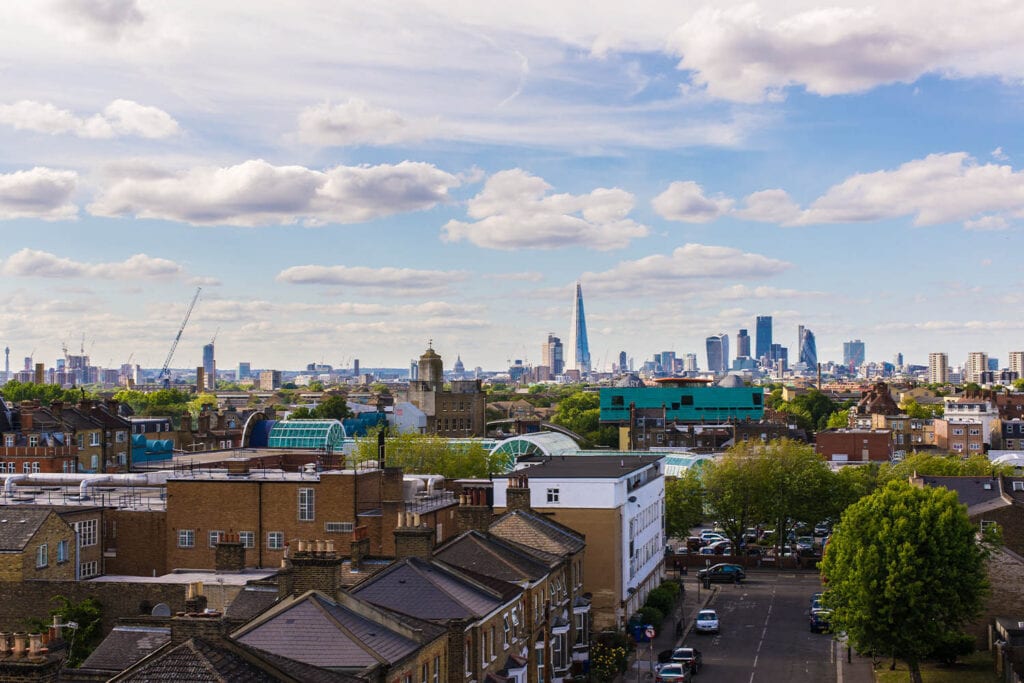Autumn Statement 2022 – how the Budget impacts London
With headline public sector spending cuts and tax rises, the Chancellor outlined a hard-hitting Budget, but where was the support for London? asks Professor Margarethe Theseira, Head of UK Consulting at Buro Happold
Jeremy Hunt has outlined his approach to stabilise the UK economy and reduce inflation with priorities of stability, growth and public services. The Office for Budget Responsibility (OBR) confirmed that due to rising inflation and interest rates the UK economy is now in recession, which is expected to last just over a year. Inflation is expected to peak at 11.1% in Q4, 2022 and then fall back sharply next year. Despite £100bn in government support, living standards are expected to fall by 7% over the next two years wiping out any improvements over the last eight years. The OBR expects real incomes in 2027 to be below their pre-pandemic peak of three years ago.
The Autumn Statement included a package of measures that will impact from 2023 including retaining the Energy Price Guarantee at £3,000 (up from £2,500 now), cost of living payments for vulnerable households, reducing dividend and capital gain allowances and the threshold for the top tax rate band, uprating pensions and benefit cap levels by CPI (Consumer Prices Index) and delaying the managed move for employment and support allowance to Universal Credit until 2028.

There was not one mention of London within the entire Autumn Statement report despite it being one of the UK’s most productive regions and a city that suffers from high levels of inequality. Average household incomes in the city are no higher than the rest of the UK after London’s high housing costs are taken into account. On the same basis, the number of adults and children living in relative poverty is higher in London than anywhere else in the country.
Around 4.24 million Londoners are liable for income tax and will be impacted by the freezing of income tax thresholds announced in the budget. London is also home to many of the wealthiest people in the country who will be impacted by the lowering of the top tax band from £150,000 to £125,140 and the introduction of greater taxes on unearned income including dividend allowances (from £2,000 to £500 by 2024) and the capital tax gains allowance (from £12,300 to £3,000 by April 2024).
At the other end of the income spectrum, the Government support announced including cost of living payments for households on means-tested benefits (£900), pensioners (£300) and disability benefits (£150) will provide greater support to the most vulnerable. London’s 940,000 pensioners will also benefit from retaining the triple lock guarantee that uprates pensions in line with the highest measure of average earnings, inflation or 2.5%. The Social Care sector was given an increase of £2.8bn in funding in 2023 and £4.7bn in 2024 but accompanied by a delay of two years before implementing the Dilnot reforms, which recommended a lifetime cap of between £25,000 and £50,000 per individual for what they spend of their social care. There were also hints that the state pension age is likely to rise again with a review to be published next year.

The mandatory National Living Wage will rise by 92p to £10.42 from 1 April 2023, someway below the voluntary London Living Wage of £11.95 announced in September 2022 that is independently calculated to account for the higher costs of living in London. Around one in five Londoners earn below the London Living Wage.
The Budget provides local authorities in England additional flexibility to increase the precept by up to 5% each year (including a 2% adult social care precept) from April 2023. London Councils highlight that there is already a £700m shortfall in funding due to the cost of living crisis and the increased flexibility would only close the gap by £80m. A 5% increase in council tax would mean that the London boroughs of Bexley, Croydon, Havering, Sutton and Waltham Forest would join Kingston upon Thames, Croydon and Richmond upon Thames where average council tax bills exceed £2,000 per annum.
The establishment of an energy efficiency taskforce to reduce the UK’s energy consumption from buildings and industry by 15% against 2021 levels, supported by new government funding worth £6bn between 2025 to 2028 will be welcomed in London where more than two million homes have an Energy Performance Certificate of D or below. But given retrofitting that number of properties far exceeds £6bn, further sources of funding will be required.
Funds for investment zones were refocused with existing expressions of interest being dropped and a new concept of university-led knowledge-intensive growth clusters introduced. Given that London is home to four of the top 100 universities in the World (Imperial College, UCL, Kings College and LSE) this could be taken as a positive step for the city except that the Chancellor specifically mentioned these clusters would be located in left-behind areas. However increased funding for innovation including those on catapults should support collaborative programmes, including institutions based in the city. Investment into London will support the Prime Minister’s goal of national economic growth.
Margarethe Theseira








